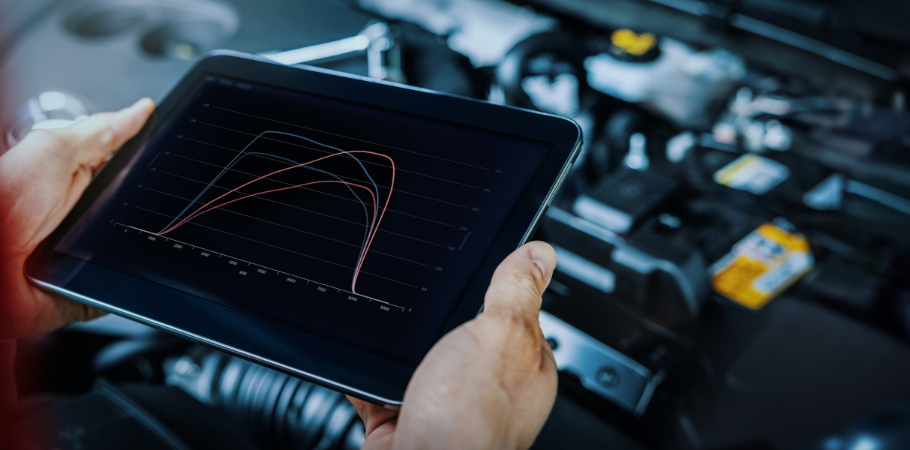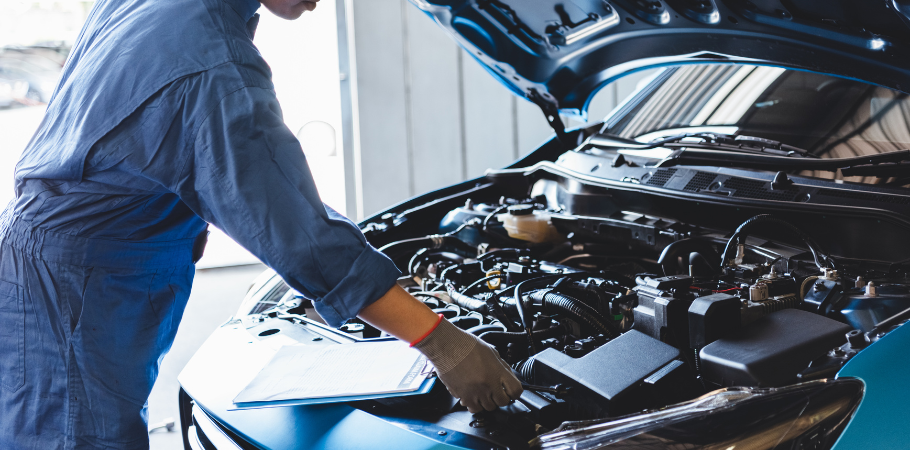
Just like taking care of ourselves, our cars need care too, especially the engine. Regular maintenance and service keep it running smoothly. One way is through decarbonization of car engine.
Decarbonization removes built-up carbon deposits inside the engine. Some people say it works, others aren’t sure. This article explains what it is and why it might be important for your car.
What is Decarbonization of Car Engine?
Decarbonization of car engine is a cleaning process that removes built-up carbon from your engine parts like pistons and the cylinder head. This keeps your engine running smoothly and at its best.
Decarbonization isn’t just for those parts – it cleans other engine components too. Now that you know what it is, let’s get into the types of car engine decarbonization.
Types of Car Engine Decarbonization
The decarbonization of car engine takes place in these two ways:
1. Mechanical Car Engine Decarbonization
In mechanical car decarbonization, the car engine is opened by the mechanic, and they physically scrape off all the carbon deposits present on the pistons and cylinder head. If the mechanic that you choose is highly experienced and skilled, then this process will also be successful.
But, if the mechanic does not know the process, it can prove to be a huge disaster. Thus, there is a requirement for chemical car decarbonization.
2. Chemical Engine Decarbonization
The chemical engine decarbonizing process makes use of terpenes and alcohol to get rid of the carbon deposits. The terpenes and alcohol are mixed with the fuel supply of the car. This leads to the carbon deposits getting dissolved and removed from the components of the engine, like pistons, crown rings, and fuel injectors. The carbon deposits are flushed out of the car via the car’s exhaust.
What Problems Do Carbon Deposits Cause?
Carbon buildup in your engine can cause several problems you’ll notice while driving:
- Rough running: The engine feels like it’s struggling to maintain a steady rhythm.
- Power loss: Your car might feel sluggish when accelerating.
- Vibration and shaking: The car vibrates noticeably, especially when starting or idling.
Why is Decarbonization of Car Engine Important?
Decarbonization cleans your car’s engine, removing built-up carbon and improving performance. Here’s what it offers:
- The engine of the car is cleaned out thoroughly with this process.
- The essential components of the engine are also cleaned out.
- The performance of the car engine is also enhanced.
- The vibration and noise caused due to the engine is reduced.
- The fuel efficiency of the car is improved and restored.
These are some of the decarbonizing engine’s benefits. However, with modern cars meeting stricter emission standards (like BS-6), some debate exists about whether decarbonization is always necessary.
The answer depends on your car’s behavior. If you notice a drop in fuel efficiency, loss of power, or excessive engine noise, decarbonization could be helpful. To prevent carbon buildup in the first place, consider using fuel additives designed for that purpose.
Key Things to Know Before Opting for Car Engine Decarbonization
There are some important things that you need to remember before you opt to get your car engine decarbonized.
Here are some of the points:
1. Decarbonization of Car Engine Has Recommended Intervals
Decarbonization, like oil changes, has recommended intervals, not a free-for-all.
For the first decarbonization, manufacturers often advise against decarbonization on newer cars. Modern engines and stricter emission standards minimize carbon buildup.
If your car has surpassed 30,000 km and shows signs of performance issues like decreased fuel efficiency, power loss, or excessive noise, consult a mechanic. They can diagnose the problem and determine if decarbonization is necessary.
Remember, exceeding 50,000 km might not automatically mean you need decarbonization. It depends on your car’s specific condition and driving habits.

Importantly, there’s no way to measure carbon buildup precisely. Unnecessary decarbonization of car engine could create a gap between the piston and cylinder wall, leading to knocking and compression pressure loss, which can significantly reduce car performance.
Moreover, frequent engine decarbonization is not recommended. This is one of the reasons why decarbonizing is not included in the annual or regular package for car service.
2. Consider All Options Before You Dive In
Before considering decarbonization, explore other causes of performance issues. Consult a mechanic to diagnose the problem. Decarbonization can be expensive, so prevention is key.
Using the right fuel, regular oil changes with high-quality oil, and avoiding short trips all help minimize carbon buildup in the first place.
Remember, even after decarbonization, carbon deposits will eventually return – it’s a natural process.
Conclusion
Decarbonization of car engine today (especially fuel-injected ones) does not guarantee any improvement in engine performance after car decarbonization.
Many manufacturers today do not recommend the decarbonization of car engine. This is because the components of the car are designed to prevent carbon from getting deposited. Also, there are very strict norms regarding emissions which reduce the deposits from taking place.
Thus, you might want to consult a professional before you opt for engine decarbonization. Also, there might be some other reasons why your fuel efficiency is dropping, so you can contact a mechanic and seek help.
Also, while you ensure that your car remains in the best possible shape, it is also essential to protect your car with the right four-wheeler insurance plan!


